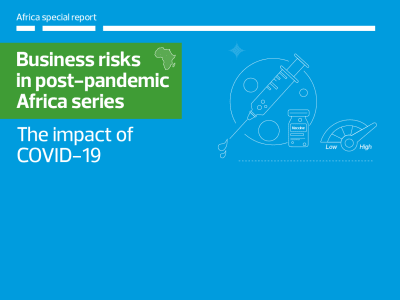According to Dr Ibrahim Mayaki, chief executive officer of NEPAD, The New Partnership for Africa’s Development (NEPAD), “infrastructural development is the key to all aspects of social and economic transformation.”
To illustrate this point, Dr Mayaki, continues, “For instance, only 38% of the African population has access to electricity, the penetration rate for internet is less than 10% while only a quarter of Africa’s road network is paved.
Studies have shown that poor road, rail and port facilities add 30% to 40% to the costs of goods traded among African countries, thus adversely affecting the private sector development and the flow of foreign direct investment (FDI).”
Domestically, infrastructure issues have also challenged middle market businesses. Phillip Krueger, RSM South Africa says: “Infrastructure in South Africa has also been a significant challenge, particularly in respect of the developing regions and maintaining a sustainable electrical power supply. As a result, this has resulted in significant direct and indirect costs for South African businesses and households. Water supply is also a rising concern.
“It is absolutely essential to obtain sound “in-country” advice and guidance before entering the African market. The infrastructure challenges in this region are unique and the financial impact can be significant if one is not well prepared.
“Where public infrastructure often presents a significant challenge, the private sector has come to the fore in offering viable alternative solutions which can be implemented in order to fill the void. For instance, in South Africa, the energy generation crises has led to the creation of a burgeoning alternative energy sector, providing sustainable solutions that either wholly replace or significantly assist the national energy grid supplier.
“Proper due diligence on the potential infrastructure challenges within a particular market does not eradicate the problem but gives the opportunity to mitigate the impact by finding an alternative strategy, often leading to a more sustainable solution.”
Mphile Manana, RSM Eswatini observes: “In many African countries, infrastructure limitations, notably in power, logistics and communication inhibit productivity at least as much as other institutional challenges such as weak governance. Rapid population growth places huge challenges on existing, and often poorly maintained infrastructure and resources.
“A study by the Infrastructure Consortium of Africa, has shown that poor road, rail and port infrastructure adds 30-40% to the costs of goods traded among African countries. Governments though are turning to Public Private Partnerships (PPPs) to deliver efficient and cost effective infrastructure and services. This presents an opportunity for private sector organisations to apply their skills and experience in infrastructure development.
“The infrastructure challenges are unique to each country. Eswatini for example, imports about 80% of its power from the Southern African Power Pool and with South Africa currently experiencing power challenges, Eswatini is working on increasing its own energy generation using renewable sources.
“As a result of the issues outlined above, the need for digitisation to strengthen the infrastructure and make greater efficiencies is on the increase.
“The Information and communications technology (ICT) sector is an emerging sector which presents opportunities and with the emergence of COVID- 19, the need for ICT business and infrastructure opportunities have found their way to the top of the country’s priorities.”, Mphile concluded.
There is no denying that Africa suffers from weak infrastructure that makes doing business difficult – from a lack of access to resilient energy sources, to poor road, rail and port facilities. This significantly impacts the supply chain and is a huge deterrent for foreign investors. Overall, the acceleration of digital solutions in the region could help to shore up the infrastructure and open the door to external investment.


